DBER Journal Club
Up until a few months ago, I didn’t even know that DBER stood for Discipline-Based Education Research. Now I’m its biggest fan, in large part due to a journal club I joined here at Cornell.

Up until a few months ago, I didn’t even know that DBER stood for Discipline-Based Education Research. Now I’m its biggest fan, in large part due to a journal club I joined here at Cornell.
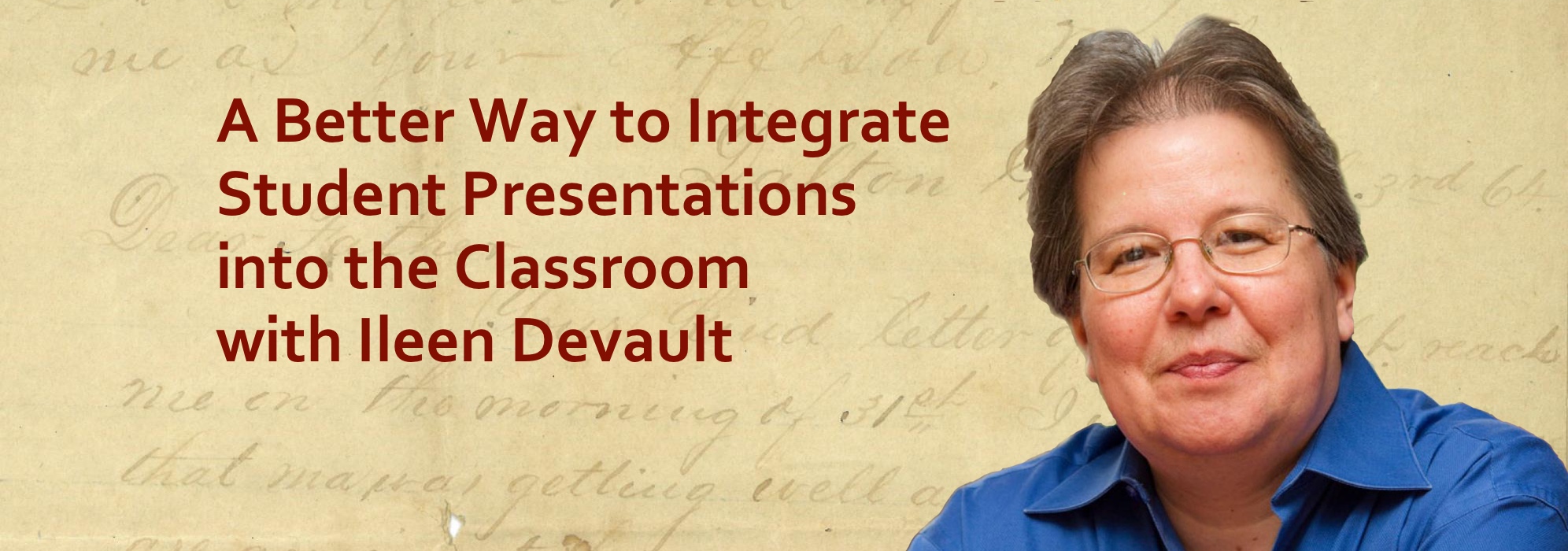
Ileen Devault is a historian in Cornell’s Industrial and Labor Relations School. In this episode she talks with us how about how she shares teaching responsibility with her students by having them lead discussion of topics using primary sources. In the process, they learn about archival research, they bring fresh energy into the classroom, and perhaps most important, they learn to think like historians.
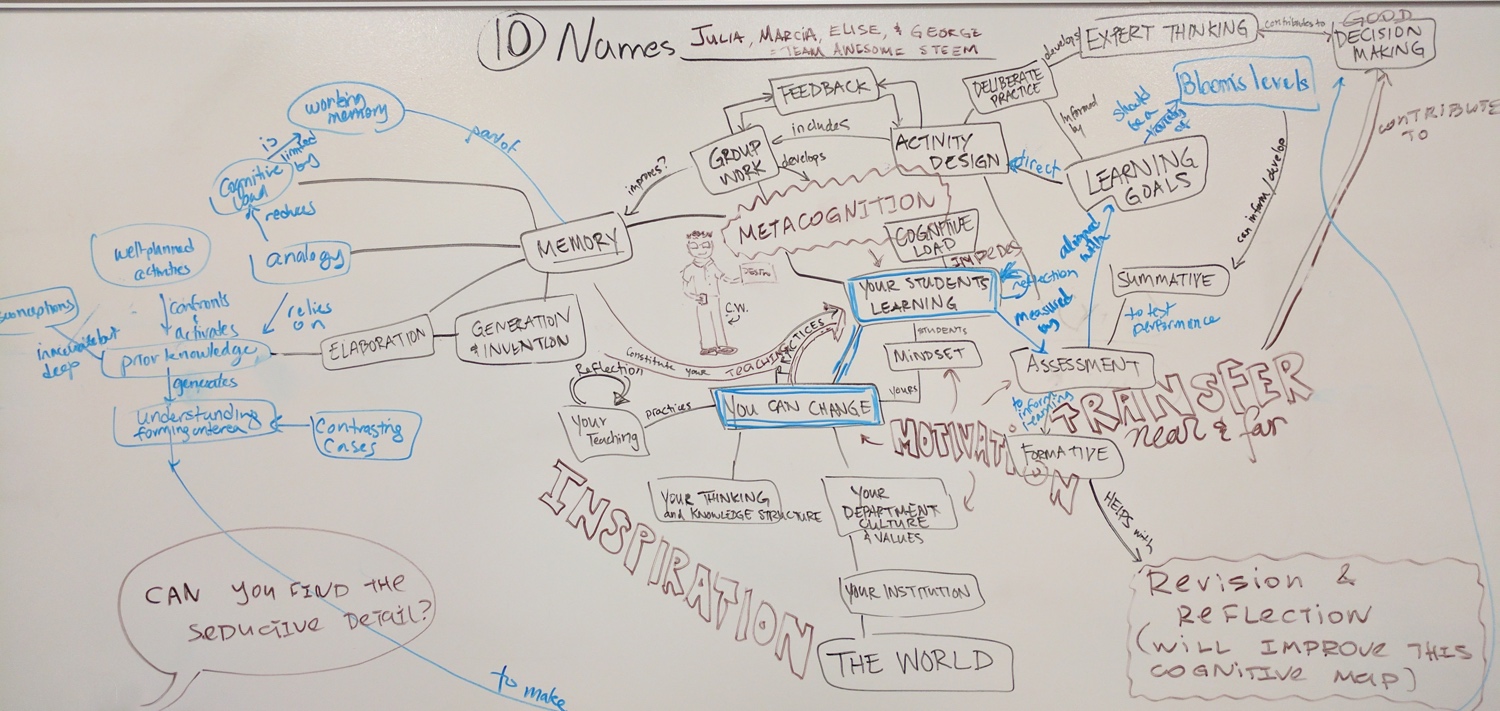
I’ve been teaching by the seat of my pants for almost 9 years now. I try new things in the classroom and pay attention to whether they work. And I like to think I have decent instincts. What I haven’t done until this summer is invest serious time reading research on teaching and learning. That’s why I jumped at the opportunity to spend 6 intensive days at Stanford studying with Carl Wieman (and about 40 like minded people) at his first ever summer Departmental Education Specialist Training Workshop.

Our guest is Natasha Holmes, an Assistant Professor in the Cornell Physics Department who specializes in physics education research. For the last several years, Natasha has been figuring out ways to increase the amount students learn in science labs. While some students find traditional lab courses to be transformative experiences, many more find them to be mindless recipe following exercises. In this episode, Natasha shares her experience with a new kind of science lab that gets students thinking critically, carefully, and creatively. We also talk about the value of doing educational research in our disciplines.

In this blockbuster finale of #edtechsummer, Edward and Doug invite three experts to share their thoughts on the future of educational technology. Michael Feldstein (e-Literate and Mindwires Consulting) reminds us that technology should serve pedagogy and suggests some sensible criteria which we can use to evaluate new products. Matthew Rascoff (Duke Center for Instructional Technology talks specifically about the future of the Learning Management System (LMS) and the potential for edtech to help students connect with each other. Bryan Alexander (independent futurist) steps back to ponder the broader impact of technology on higher education. All in all, this is one of our most thought-provoking episodes.
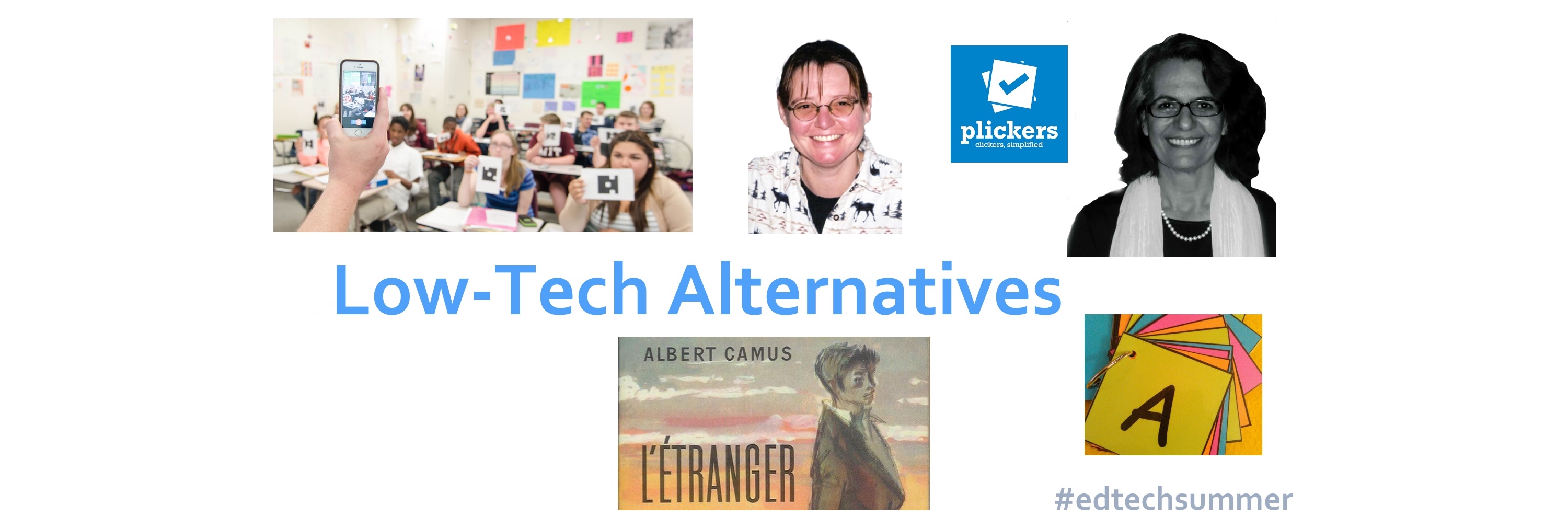
Edward and Doug discuss several low-tech alternatives to technology products they’ve discussed in earlier episodes of #edtechsummer. Laminated color-coded cards and Plickers let you poll your class without any student-held electronics. Atiyeh Showrai joins us from the USC French language program to talk about their experience creating an e-workbook using just Microsoft Word and Adobe Acrobat. Then Quirine Ketterings (Cornell) shares the role-play game she plays at the end of term in her Whole Farm Nutrient Management class.
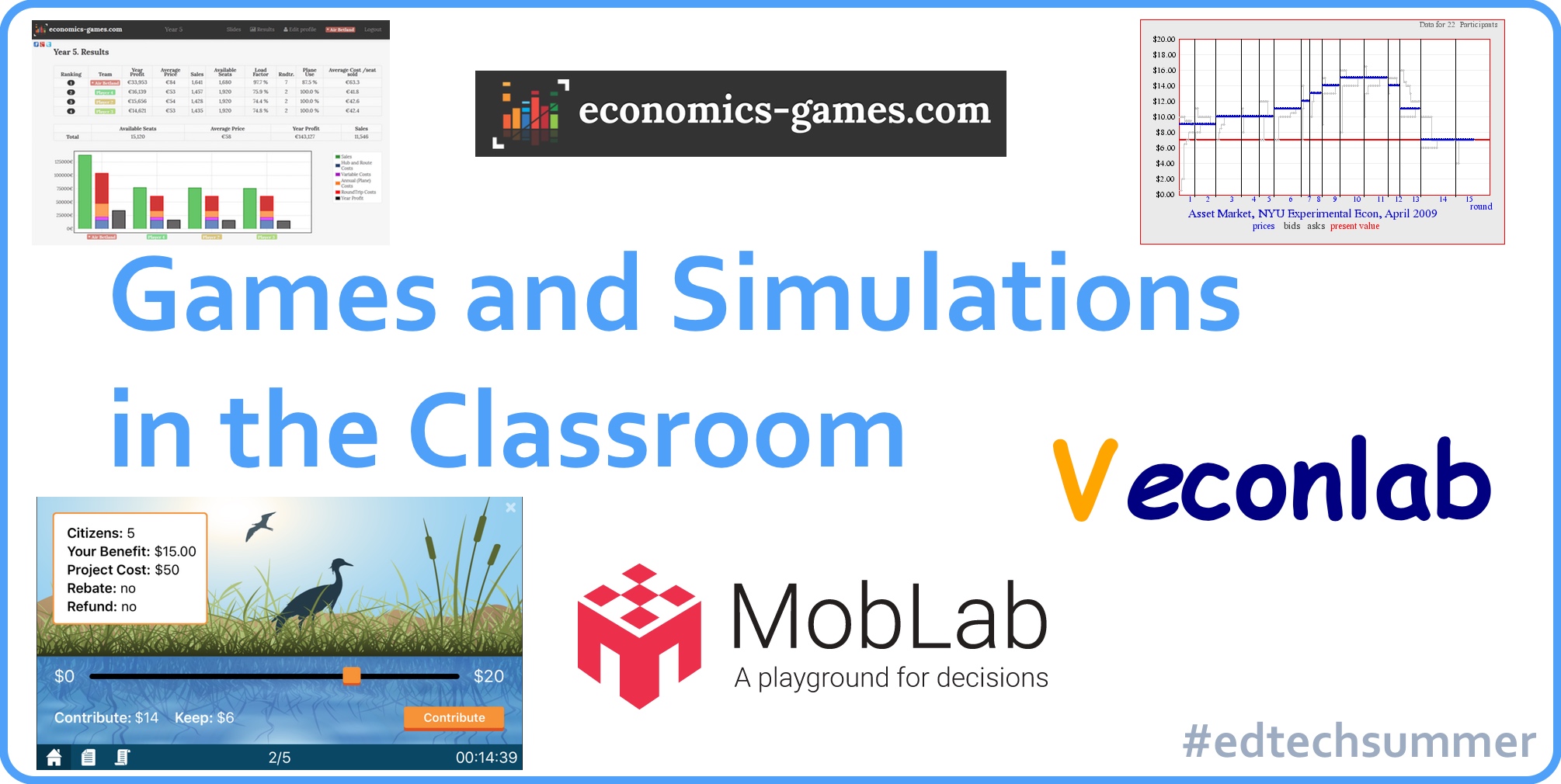
Economists study systems where individuals make decisions about buying, selling, and investment, and interesting patterns emerge. As in many disciplines, they teach by developing theory and pointing to examples in the real world, but it’s not always very convincing. Doing simulations and playing games in class lets students participate and see for themselves where the theory does and does not apply. Our guests Bob Gazzale (Toronto) and Matt Olczak (Aston) do this in their classes using three different web platforms: Moblab, economics-games.com, and vEconlab. In this episode they share their experiences with each.
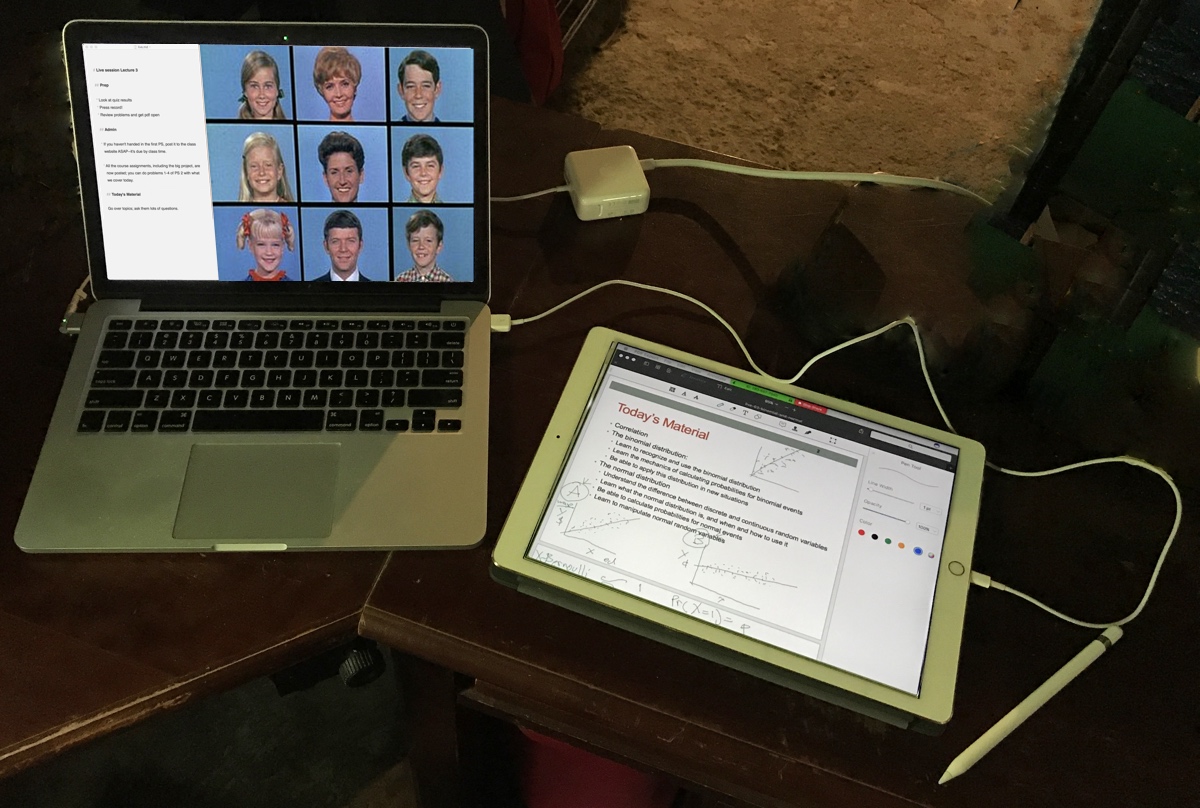
I’m teaching econometrics online in Yale Summer Session again, and like clockwork, have made major changes to the technology behind the live video sessions. It’s working better than ever, though of course, nothing is perfect.
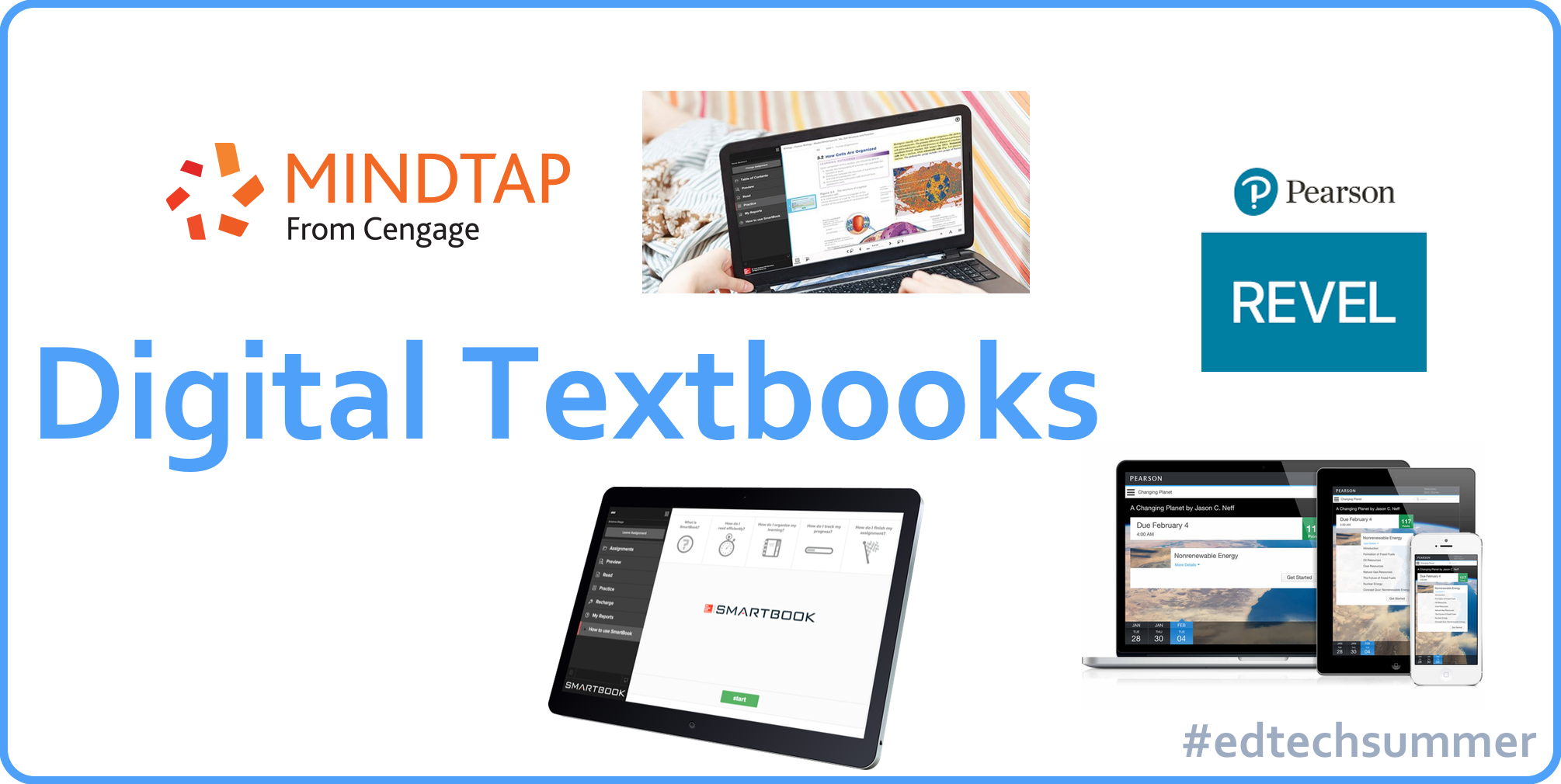
In the latest installment of #edtechsummer we focus on digital textbooks. These products go far beyond simple digital versions of the text, and often include embedded quizzes, smart highlighting, note taking, and interactive figures, all on top of attractive formatting. The big publishers have come a long way in the past few years. Catherine Medrano (College of the Sequoias) shares her experience teaching with Pearson Revel, Kate Antonovics (UCSD) tells us about McGraw-Hill SmartBook, and Stephanie Thomas (Cornell) explains what she and her students liked (and didn’t like) about the Cengage MindTap. Along the way we compare features, pricing, and availability of content.